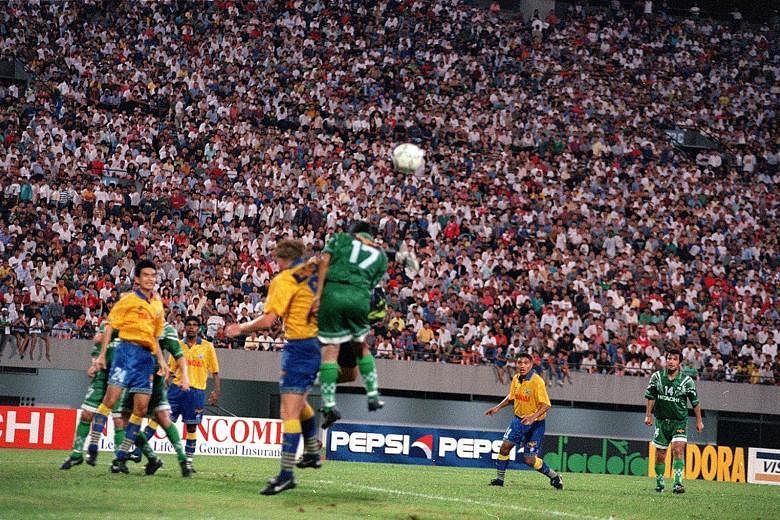The recent Football Association of Singapore (FAS) election and the ensuing donation saga threw up several transparency and governance issues about the association.
The level of corporate governance fell short of a registered charity which operated on a $35.8 million budget in its last financial year.
Paul Poh, general manager of S-League club Warriors FC, said: "The election was a big shake-up. People were quite shocked to see these lapses surface and it also caused SportSG to check on some clubs. And these are only the ones that came up.
"Who knows what else has happened?"
In response to queries from The Sunday Times, local sport governing body Sport Singapore said: "SportSG will be meeting the new FAS council soon to emphasise that they must ensure that their governance review is comprehensive and robust.
"We will be requiring the council to report the findings and recommendations from that review and we will be monitoring the implementation of tighter internal controls."
The donation saga revealed that not all council members were aware that Tiong Bahru FC (TBFC) had, through the FAS, donated $500,000 to the Asean Football Federation for a football portal.
The public then learnt that audits into three clubs, prompted by feedback over the management of jackpot revenue, are still incomplete despite starting in March last year.
Former council members also did not know that former president Zainudin Nordin was elected TBFC chairman while he was still in office, even though the former PAP MP for Bishan-Toa Payoh turned it down.
Moving forward, the community said the new council must not operate like the FAS of old, where some decisions were unilaterally made by a few office holders - without consultation with the rest of the council or fraternity.
The council must also make it a habit to be transparent, even with potentially negative news. Potential conflicts of interests must be disclosed, with sanctions in place to deter any wrongdoers.
Having standing committees or an internal audit branch to look into these areas could be a measure.
Poh said: "You have to tighten the checks and have clear rules. If too many individuals are assigned to make decisions by themselves and they don't report them, then nobody knows. Every individual needs to be accountable.
"Instead of hiding, staff have to be open and declare what they are doing. Sometimes you might not know that you're breaking the rules. So by being open and declaring it, conflicts of interest can be avoided."
While the image of the FAS has taken a hit, Tampines Rovers chairman Krishna Ramachandra said not all is lost.
The corporate lawyer said: "Sure, there may have been a lapse... but we need to put things in context and we should not broadly criticise the overall system or regulatory framework, which I think, is solid.
"A surgeon's scalpel and not a hammer has to be utilised in this clean-up."

